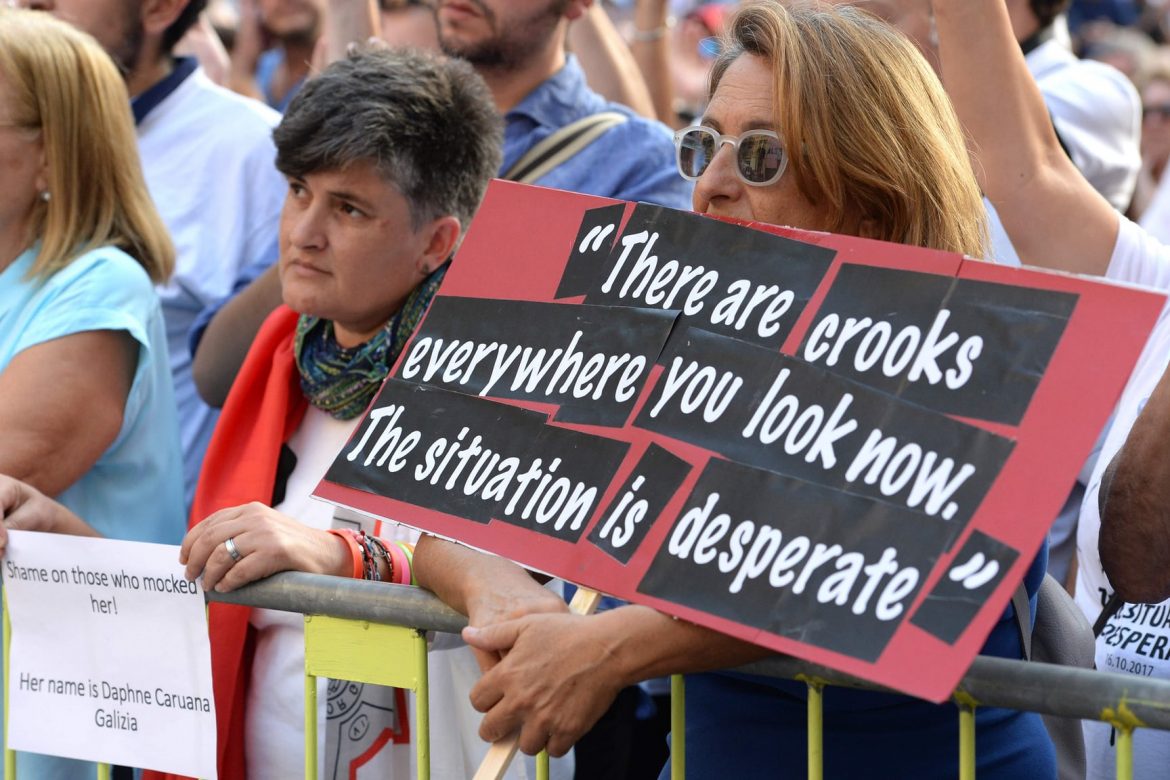This material belongs to: The Guardian.
Maria Efimova surrenders in Greece after Malta and Cyprus issued European arrest warrants.
A whistleblower at the centre of a corruption scandal surrounding Malta’s prime minister, Joseph Muscat, has handed herself in to police in Athens.
Maria Efimova, who claimed a private bank where she worked had been used to move funds for Maltese politicians and the children of the President of Azerbaijan, voluntarily attended a police station in Syntagma Square on Monday night.
Maltese authorities issued a European arrest warrant for the Russian national in November, alleging she had made false claims against local police. This was followed by an arrest warrant in Cyprus, where Efimova had lived and worked four years ago, over allegations of defrauding her employer.
Efimova was transferred to court custody on Tuesday morning and a judge will consider her case. She had earlier contacted friends and supporters saying she was in emotional distress and feared for her life.
The MEP Stelios Kouloglou, who had been helping Efimova with an application for residency in Greece, spoke to her and to the police officer dealing with her case on Monday night. He told the Guardian: “She called me last night from the police station. She told me she turned herself in because she was afraid. Her husband called this morning. He said she was terrorised and saying she was going to die.”
Efimova left Malta with her husband and children in 2017, and they currently live in Crete. Her claims about the bank, Pilatus, which its owners and Malta’s political leadership reject, were first reported by the journalist Daphne Caruana Galizia, who was killed by a car bomb last October.
Three men are in custody over Caruana Galizia’s death, accused of planting and detonating the bomb, but the investigation into who ordered the attack continues. Caruana Galizia’s family claim the 53-year-old was the victim of a political assassination. Malta’s government has offered a €1 m (£875,000) reward for information on those who commissioned the killing.
Caruana Galizia had taken aim at a wide range of targets inside Malta, claiming criminal interests had turned it into an island mafia state. She reported on a political system rife with corruption, businesses seemingly used to launder money or pay bribes, and regulators and magistrates unable to hold malign actors to account.
Efimova’s first application for Greek residency had been rejected by the local authority in Crete, Kouloglou explained, but she had recently appealed to the ministry of internal affairs in Athens. The MEP said he had supported her appeal.
In a statement Kouloglou said: “The arrest warrant against Maria Efimova is based on ridiculous accusations by Malta’s authorities. Her possible extradition to Malta would seriously jeopardize her life. Greek Justice, that is investigating her case after she surrendered to the police, must take into serious consideration the murder of Daphne Caruana Galizia, to whom whistleblower Maria Efimova had given a lot of revealing information concerning financial scandals.”
The Maltese warrant alleges Efimova made false claims against police officers. She had been arrested in Malta after a complaint from Pilatus that she had defrauded the bank. Efimova rejected the accusations made by police and the bank.
In January, Cypriot police confirmed they too had issued a European and international arrest warrant against Efimova and her husband. This was prompted by an accusation from a former employer in Limassol that Efimova had embezzled funds.
Efimova dismissed the Cypriot allegations and said the move was part of a plot to discredit her.
The Maltese MEP David Casa, a member of the country’s opposition Nationalist party, called on the Greek authorities to do everything within their power to protect Efimova and her family.


